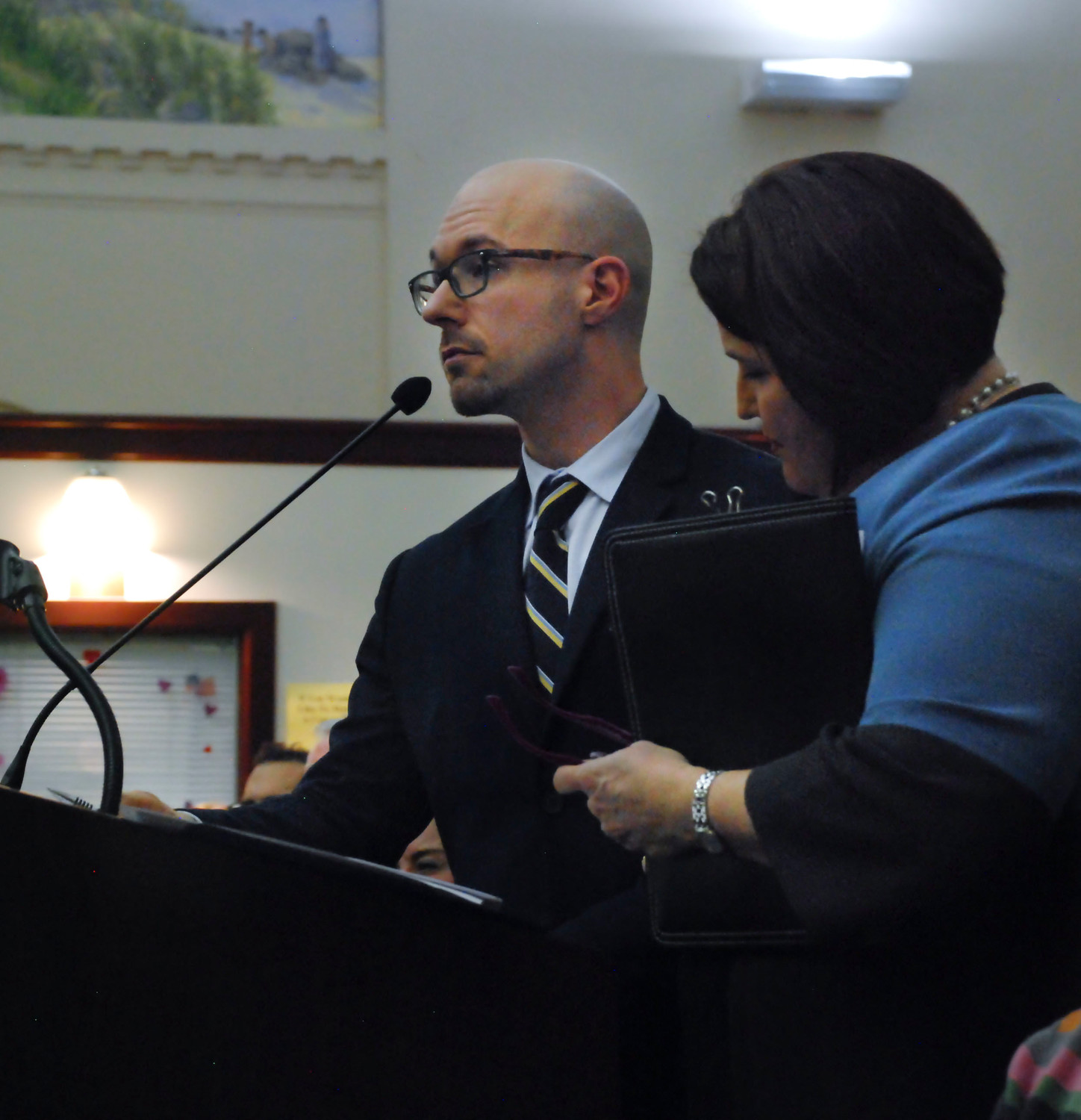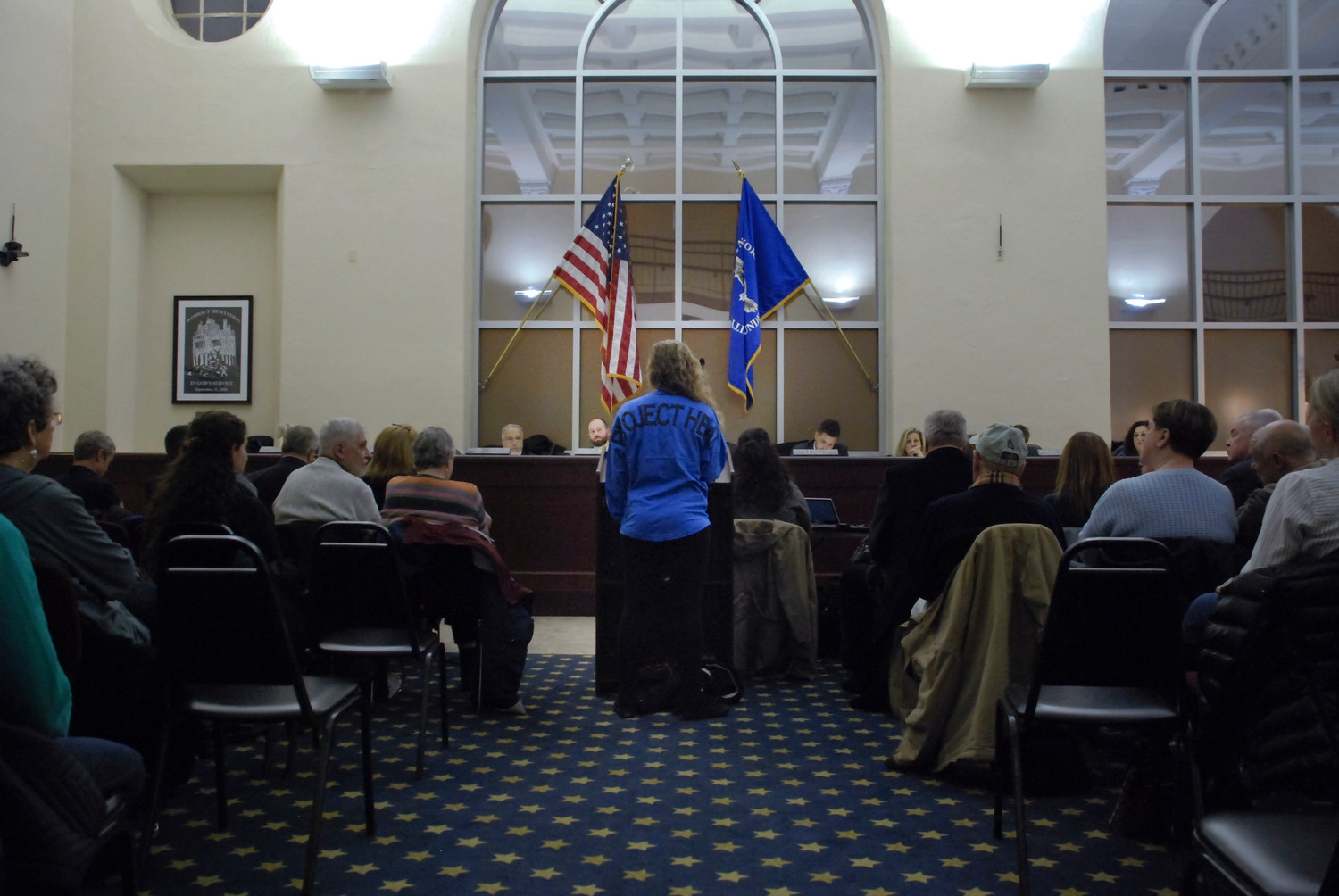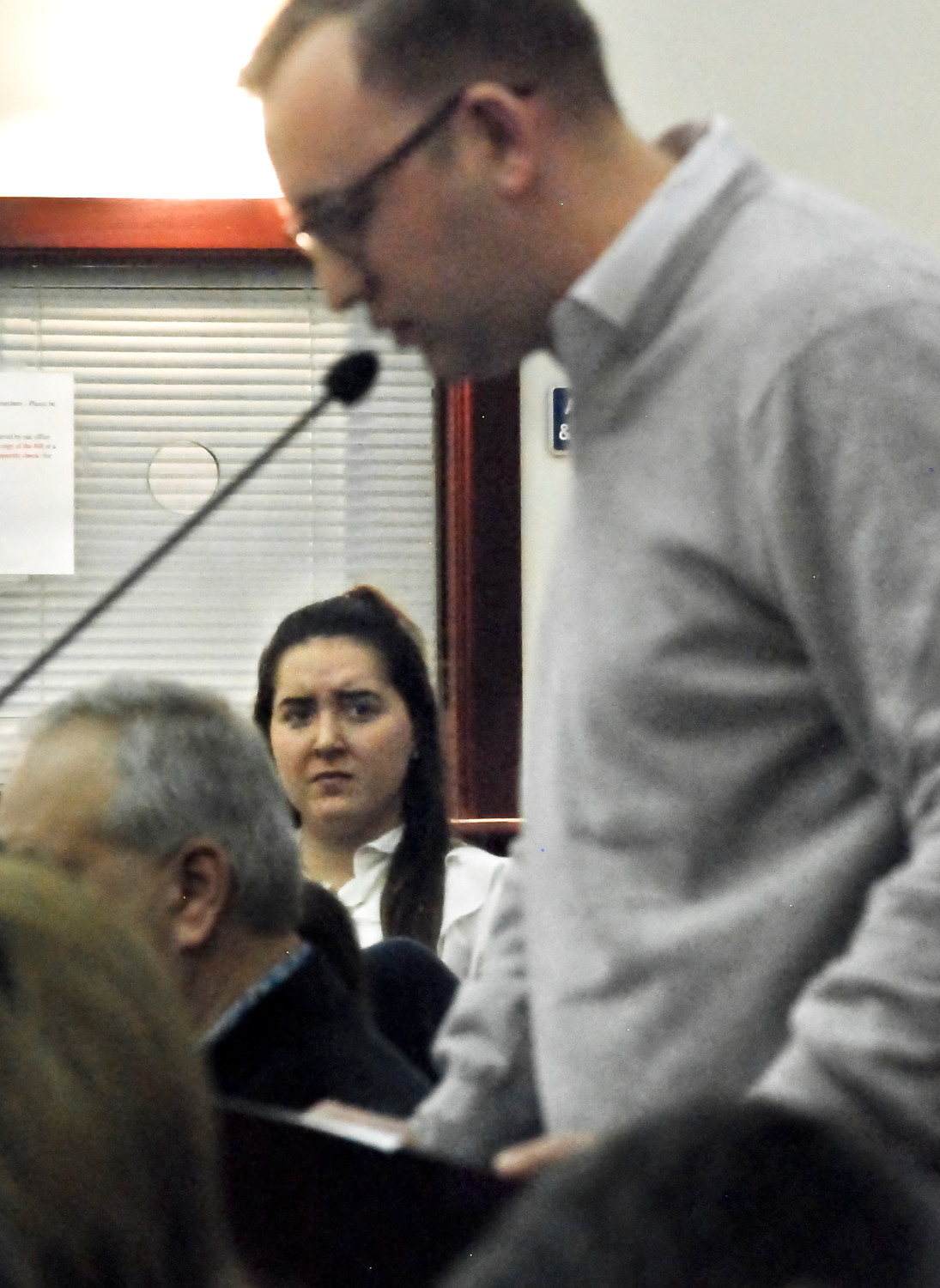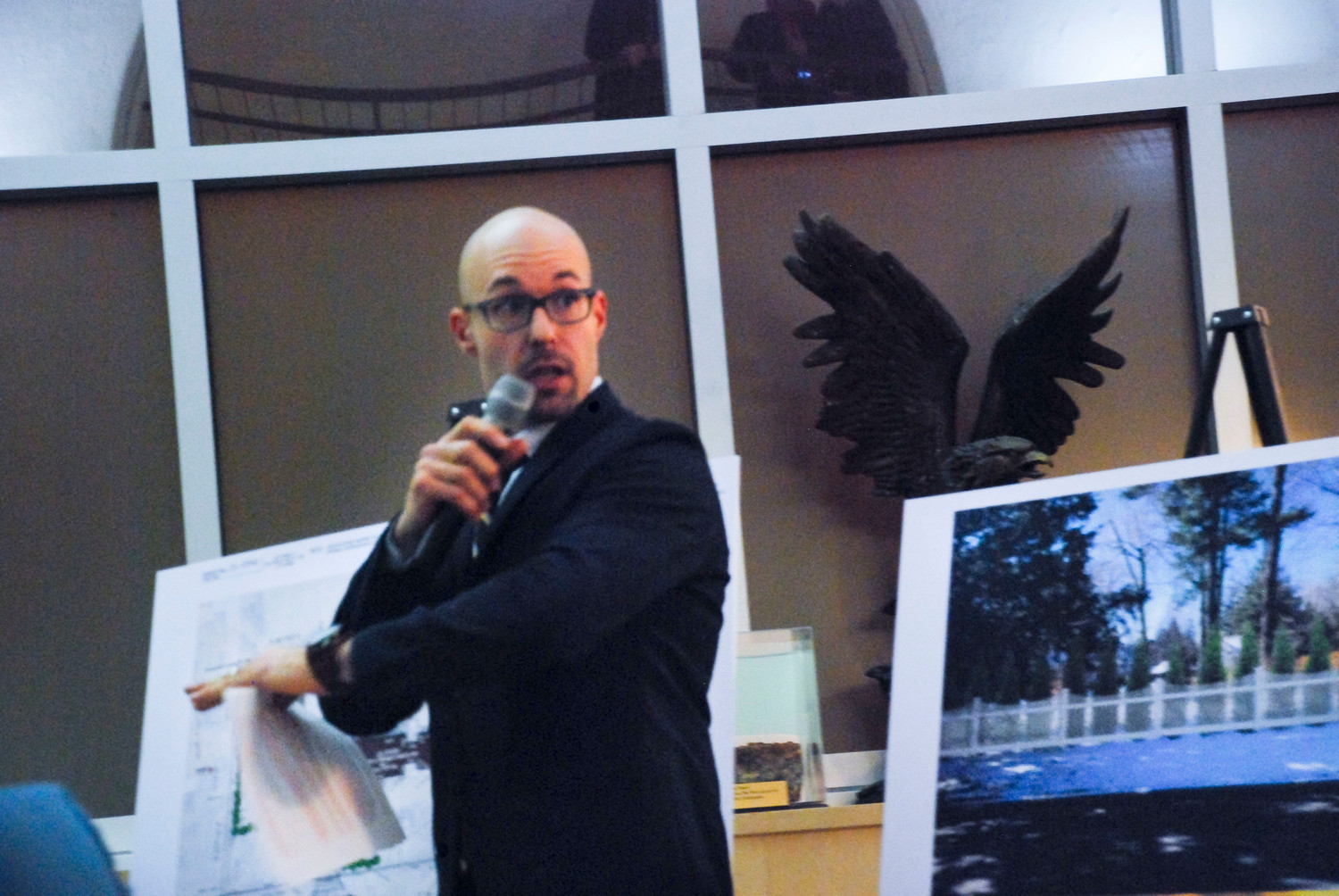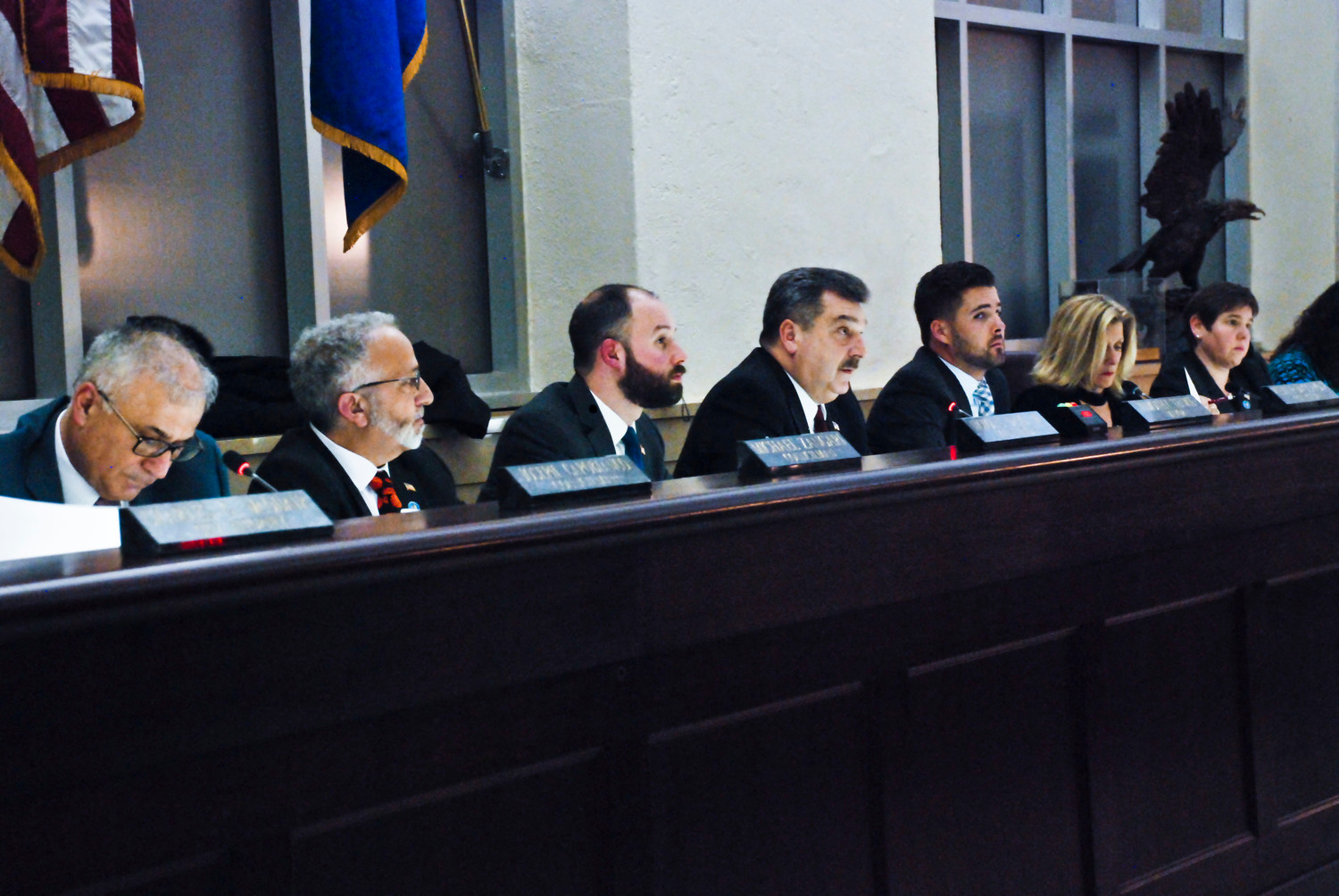Council will decide on group home next Tuesday
Locals air concerns at public hearing
Updated Feb. 15
On Feb. 20, the City Council will vote on how to respond to an application — filed by California-based company Monte Nido — to turn the mansion at 1 St. Andrews Lane into a residential treatment center for adult women with eating disorders.
At the beginning of a public hearing on the matter on Feb. 8, Mayor Tim Tenke outlined how that hearing would go. Members of the public would be able to voice their sentiments after a presentation by the Monte Nido’s lawyer, Kathleen Deegan Dickson, of Glen Cove.
Monte Nido’s case
Dickson’s presentation included testimony from Jennifer Gallagher, Monte Nido’s chief development officer, who spoke about what the proposed center’s treatment program would look like; architect Michael Sciara, who shared the proposed changes to the property, most notably the addition of a 12-space parking lot; and engineer Robert Eschbacher, who revealed the results of a traffic study, which found that traffic to and from the facility would not impact existing traffic patterns on Highland Road.
The council’s concerns
After Dickson’s pitch, Councilman Joseph Capobianco submitted his own exhibits to the applause of the proposal’s opponents. They included years-old Nassau County documents that showed the county had previously rejected a plan by former owner of the property to build an apartment above the garage and rent it out for profit. Capobianco argued that Monte Nido would be a profit-making business, so its plan for a group home should be rejected.
The council also questioned Eschbacher about the methodology of his traffic study, which focused only on Highland Road, and apparently did not account for the property’s proximity to the Glen Cove Long Island Railroad station. The area surrounding the station is a busy traffic zone.
Eschbacher countered that during its busiest hour, the group home would add one car to the surrounding traffic flow every 12 minutes. “Twelve minutes is a long time to then say, ‘One more car went by,’” he said, adding that he didn’t foresee a noticeable increase in traffic.
Local opposition
Much of the public’s later opposition centered on New York’s 1978 Padavan Law, which treats group homes as single-family dwellings for zoning purposes and hinders the ability of municipalities to block them.
Many opponents suggested that Monte Nido’s proposal doesn’t fall under the Padavan umbrella on a number of grounds. For one, they said, it is a for-profit company. They also said that an eating disorder is not considered a qualifying mental-health condition under the law. The residents of Monte Nido, they added, would be there temporarily, rather than permanently. The Padavan Law was meant to address permanent residences, they said.
Dickson countered that their arguments were without merit, and she noted that the state’s Office of Mental Health had already approved two other Monte Nido facilities under Padavan.
When city attorney Charles McQuair was asked whether he believed Monde Nido’s proposal fell under the Padavan Law, he declined to comment on an unresolved matter.
Nancy Hawkins, whose in-laws live next to the property in question, said that headlights from cars pulling in and out of the proposed 18 parking spaces would disturb nearby neighbors at night. “This is going to make a very heavily trafficked corner unbearable for the people who live around it,” Hawkins said.
David Berkley said that he felt manipulated by Monte Nido and the people who came to speak in support of the proposal. “They gave a great impassioned speech about how uncaring we are,” Berkley said, referring to several speakers from outside Glen Cove with personal or professional ties to Monte Nido. “I think it’s beneath the presenters to bring these people in, in an underhanded way, to appeal to us this way.”
From personal experience
Samantha Farber, of Woodmere, a former patient at another Monte Nido facility, spoke in favor of the Glen Cove center. When Farber asked permission to turn and respond to some of the community’s concerns based on her experience with Monte Nido, she was shouted down.
Undeterred, she faced the council and continued speaking, telling members that she was now almost seven months into her recovery from anorexia, and that without Monte Nido’s help, she would probably be dead.
Paula Frohm, an appellate lawyer from Glen Cove, sat in the crowd listening, shaking her head. “I was very distressed at the attitude of my Glen Cove neighbors,” she later told the Herald Gazette.
“I wish I had spoken,” Frohm said, noting that she didn’t know that she had to sign in to speak. “It’s very distressing to see people, especially in Glen Cove, which is made up of all types of people, behaving that way.”
Frohm’s son lives in a group home for the developmentally disabled in East Northport. She said that she was among the parents who set it up, and that she faced similar community pushback when she and other parents tried to get the group home up and running. She attributed the opposition in both cases to a “fear of the unknown.”

 41.0°,
Fair
41.0°,
Fair 
